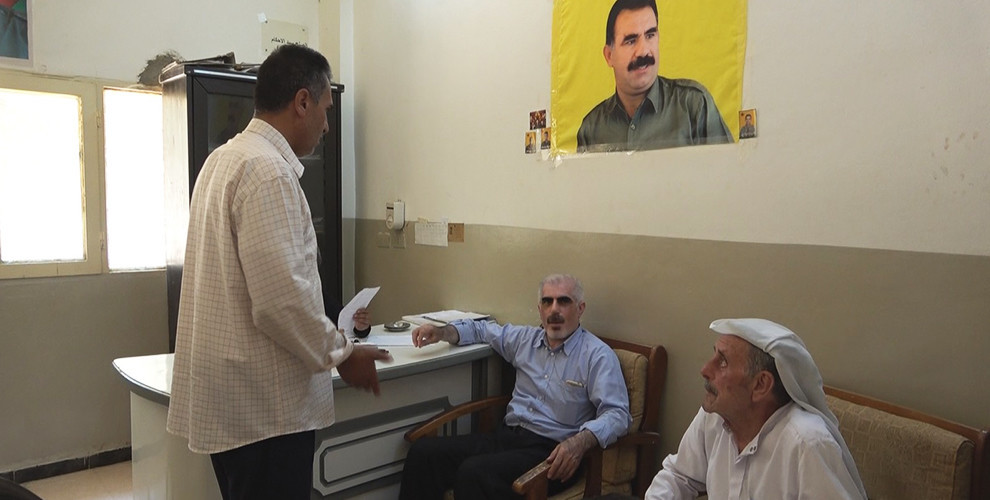Justice through dialogue
The Peace Committees solve conflicts through dialogue and mutual understanding.
The Peace Committees solve conflicts through dialogue and mutual understanding.

The Peace Committees were an essential part of the new model of governance devised after the Rojava revolution in Northern Syria.
They changed the very notion of justice and turned into pillars of social justice to be achieved through mutual agreement and dialogue.
The committee established on 26 October 2013 in the province of Til Kocher, in the Qamishlo Canton, has been working non stop since its establishment.
The committee, acting according to the Social Agreement of the Democratic Confederalism approved for Northern Syria, has the crucial mission to solve most problems and controversial issues in the region.
The Peace Committee consists of 7 members in the district and has solved 100 of the 115 files opened in the past three months. The Committee has addressed issues related to inheritance, domestic violence, murder crimes.
The Committee has resolved the 20-year-old dispute between the county's Metred and Wesran families, which represented one of the most important issues in the district.
Bekirî Mehmud, one of the Peace Committee Administrators, said they unraveled 45 of the 46 files opened in July.
Indicating that the committee is aiming for social justice and internal peace, Mehmud stated that the confusion was also hampered by the methods being followed.
The Democratic Confederalism advocates for a diversified justice system, where some issues do not need to be discussed through lengthy processes in courts but instead could be dealt with in smaller institutions, such as the Peace Committees.
The onus, clearly, is on people, which is at the centre of the whole idea of Democratic Confederalism.
Responsibility, both individual and collective, plays and important role as it means recognising one's mistake and being able to assume it and repair the damage, without going through courts and the traditional justice system.
This also means Courts are not overwhelmed with cases which could be resolved through dialogue and negotiations.